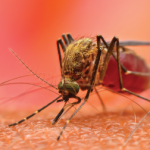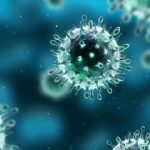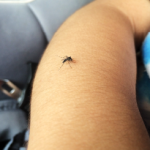In this review, the authors address the key pathophysiologic mechanisms that drive acute and chronic chikungunya arthritis, arguably the most incapacitating sequela among long-lasting chikungunya virus disease manifestations, based on recent animal experimental disease models and epidemiologic studies. They explore the latest findings in therapeutic development aimed at limiting viral spread and at immune and inflammatory mechanisms, and address the implications of such findings in current and future clinical care of chikungunya virus patients.
Chikungunya virus, a previously neglected tropical arthritogenic alphaviral infection, gained global significance in the past decade after a series of devastating outbreaks exposed its severe public health and economic impact, as well as the significant risk of acquired disabilities incurred by international travelers.
Although developed economies that have experienced significant numbers of traveler-imported cases are somewhat equipped to manage the chikungunya virus disease burden, less economically developed regions of the world—in particular densely populated urban areas—where epidemics have become most resilient, have seen their public health systems overwhelmed by the disease.
Chikungunya virus is recognized as an emerging biphasic disease, described as an acute infection followed by persistent symptoms. Experts have defined three successive clinical stages. In symptomatic, infected individuals, the first stage encompasses an acute incapacitating febrile viremic phase together with residual symptoms. The two final stages are characterized by persistent manifestations: a post-acute stage (from 21 days after the onset of infection to the end of the third month) and a chronic stage (beyond three months). Schematically, the disease progresses to resolution without sequelae either spontaneously or after treatment, or to a persistence of articular and general symptoms, or to aggravation due to an inflammatory or degenerative process.
Symptoms include a range of acute manifestations, among which fever, severe joint and muscle pain, headache and rashes are prominent. Concern is mounting over the persistence of long-lasting manifestations associated with debilitating effects of the disease and the deterioration of overall health and quality of life. Among these, chronic arthralgia/arthritis (joint pain/joint stiffness plus joint swelling, respectively), musculoskeletal injury and fatigue—and to a lesser extent, neurocognitive and sensorineural manifestations—have been shown to contribute significantly to the economic burden of the disease.
Although vaccines have reached human trials and a range of potential antiviral compounds have undergone preclinical evaluation, no licensed vaccines or antiviral therapies are available. Both acute and chronic disease manifestations are of significant concern, and there are currently no specific, approved drugs to treat either form of the disease.


